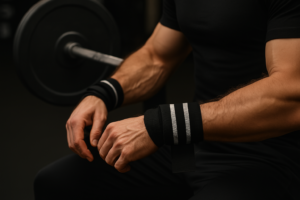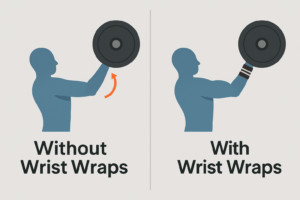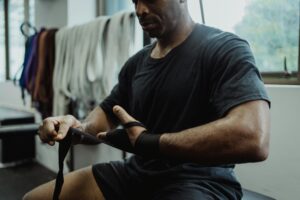Are Wrist Wraps Your Secret Weapon?
Ever wondered why seasoned lifters swear by wrist wraps? Let’s dive into the science and uncover how they can elevate your weightlifting game.

The Science Behind Wrist Wraps
Wrist wraps are designed to provide support and stability to your wrists during heavy lifts. By restricting excessive movement, they help maintain proper wrist alignment, which is crucial for both performance and injury prevention.

Stability and Performance
A study published in Medicine examined the effects of weightlifting belts and wrist straps on deadlift performance. The research found that using both aids together reduced knee flexion during the setup phase and decreased the time to complete a deadlift, suggesting improved lifting kinematics and efficiency. Read the full study here.

Injury Prevention
Consistent wrist support can also play a role in reducing the risk of injuries. Research indicates that wrist wraps may serve as protective devices in powerlifting by providing necessary support to the wrist joint during heavy lifts. Check out the research here.

Are Wrist Wraps Right for You?
While wrist wraps offer notable benefits, they’re not a one-size-fits-all solution. It’s essential to assess your individual needs and consult with a fitness professional to determine if wrist wraps are appropriate for your training regimen.

Call to Action: Elevate Your Training
Ready to take your lifts to the next level? Consider incorporating wrist wraps into your routine and experience the difference firsthand. For more insights and personalized advice, connect with a certified trainer or physical therapist who can guide you based on your specific goals and needs.

Note: Always prioritize proper technique and consult with a healthcare or fitness professional before introducing new equipment into your training.




